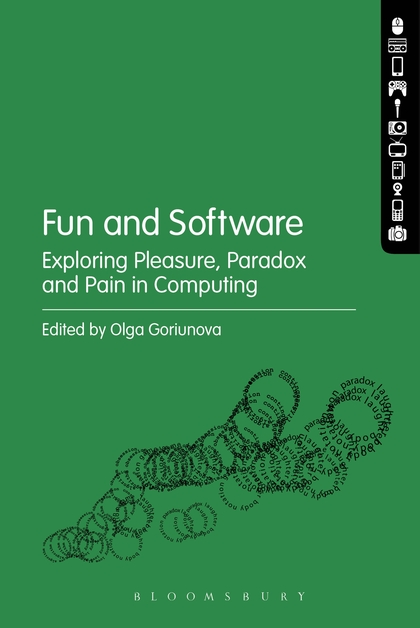Luciana Parisi: Contagious Architecture: Computation, Aesthetics, and Space (2013)
Filed under book | Tags: · abstraction, aesthetics, algorithm, architecture, cognition, computation, computing, cybernetics, design, evolution, feedback, infinity, information, interaction design, knowledge, media, metaphysics, networks, neural networks, philosophy, processing, randomness, sensors, software, space, temporality, time, topology, variation

“In Contagious Architecture, Luciana Parisi offers a philosophical inquiry into the status of the algorithm in architectural and interaction design. Her thesis is that algorithmic computation is not simply an abstract mathematical tool but constitutes a mode of thought in its own right, in that its operation extends into forms of abstraction that lie beyond direct human cognition and control. These include modes of infinity, contingency, and indeterminacy, as well as incomputable quantities underlying the iterative process of algorithmic processing.
The main philosophical source for the project is Alfred North Whitehead, whose process philosophy is specifically designed to provide a vocabulary for “modes of thought” exhibiting various degrees of autonomy from human agency even as they are mobilized by it. Because algorithmic processing lies at the heart of the design practices now reshaping our world—from the physical spaces of our built environment to the networked spaces of digital culture—the nature of algorithmic thought is a topic of pressing importance that reraises questions of control and, ultimately, power. Contagious Architecture revisits cybernetic theories of control and information theory’s notion of the incomputable in light of this rethinking of the role of algorithmic thought. Informed by recent debates in political and cultural theory around the changing landscape of power, it links the nature of abstraction to a new theory of power adequate to the complexities of the digital world.”
Publisher MIT Press, 2013
Technologies of Lived Abstraction series
ISBN 0262018632, 9780262018630
392 pages
For a New Computational Aesthetics: Algorithmic Environments as Actual Objects lecture by Parisi (2012, video, 72 min).
Reviews: Lecomte (Mute, 2013), Ikoniadou (Computational Culture, 2014).
PDF (24 MB, updated o 2021-10-28)
Comments (2)Olga Goriunova (ed.): Fun and Software: Exploring Pleasure, Paradox and Pain in Computing (2014)
Filed under book | Tags: · abstraction, aesthetics, affect, algorithm, art, body, code, computing, game, humour, labour, logic, media, media theory, politics, programming, software, software art, software studies, theory, time

“Fun and Software offers the untold story of fun as constitutive of the culture and aesthetics of computing. Fun in computing is a mode of thinking, making and experiencing. It invokes and convolutes the question of rationalism and logical reason, addresses the sensibilities and experience of computation and attests to its creative drives. By exploring topics as diverse as the pleasure and pain of the programmer, geek wit, affects of play and coding as a bodily pursuit of the unique in recursive structures, Fun and Software helps construct a different point of entry to the understanding of software as culture. Fun is a form of production that touches on the foundations of formal logic and precise notation as well as rhetoric, exhibiting connections between computing and paradox, politics and aesthetics. From the formation of the discipline of programming as an outgrowth of pure mathematics to its manifestation in contemporary and contradictory forms such as gaming, data analysis and art, fun is a powerful force that continues to shape our life with software as it becomes the key mechanism of contemporary society.”
Texts by Andrew Goffey, Simon Yuill, Matthew Fuller, Luciana Parisi and M. Beatrice Fazi, Adrian Mackenzie, Michael Murtaugh, Geoff Cox and Alex McLean, Wendy Hui Kyong Chun and Andrew Lison, Christian Ulrik Andersen, Brigitte Kaltenbacher, Annet Dekker, and Olga Goriunova.
Publisher Bloomsbury, New York and London, 2014
New Media and Technology series
ISBN 1623560942, 9781623560942
285 pages
Software studies page on Monoskop
Comment (0)Jean-Luc Chabert, et al.: A History of Algorithms: From the Pebble to the Microchip (1994–) [French, English]
Filed under book | Tags: · algorithm, computing, history of computing, history of mathematics, mathematics, turing machine

A source book for the history of mathematics, but one which offers a different perspective by focusing on algorithms. With the development of computing has come an awakening of interest in algorithms. Often neglegted by historians and modern scientists, more concerned with the nature of concepts, algorithmic procedures turn out to have been instrumental in the development of fundamental ideas: practice led to theory just as much as the other way round. The purpose of this book is to offer a historical background to contemporary algorithmic practice. Each chapter centres around a theme, more or less in chronological order, and the story is told through the reading of over 200 original texts, faithfully reproduced. This provides an opportunity for the reader to sit alongside such mathematicians as Archimedes, Omar Khayyam, Newton, Euler and Gauss as they explain their techniques. The book ends with an account of the development of the modern concept of algorithm.
With Évelyne Barbin, Michel Guillemot, Anne Michel-Pajus, Jacques Borowczyk, Ahmed Djebbar, and Jean-Claude Martzloff
Publisher Belin, Paris, 1994
ISBN 2701113466, 9782701113463
591 pages
English edition
Translated by Chris Weeks
Publisher Springer, 1999
ISBN 3540633693
524 pages
Publisher (FR, new edition)
Publisher (EN)
Histoire d’algorithmes: du caillou à la puce (French, DJVU, 10 MB)
A History of Algorithms: From the Pebble to the Microchip (English, DJVU, 6 MB)
See also Algomation.com, a platform for viewing, creating and sharing algorithms.
Comment (0)
